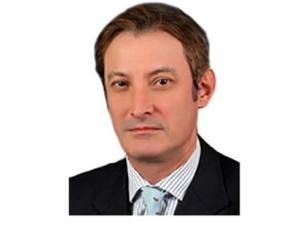“A COUNTRY WITHOUT memory is a country of madmen,” wrote George Santayana, the Spanish-American 20th century man of letters. I hope his words cannot apply to the Philippines and its forthcoming presidential elections, but I suspect they might well.
Thirty years after the plunder of billions of dollars from the national treasury under the rule of former Philippines president Ferdinand Marcos – not to mention mass torture, murder and the curtailment of civil liberties under the martial law he imposed – there is the prospect of a scion of the Marcos family once again ending up at the upper reaches of power in the country.
The former dictator’s son and namesake, Ferdinand “Bongbong” Marcos junior is running in the May elections on the slate for vice-president, a role that in the Philippines is decided by a separate vote from that of president. This means that the Philippines’ president and vice-president can sit in power despite running on separate party tickets.
And that dual voting process taps into a unique dynamic in a country where the power of personality, a “name” brand and some sort of back story can allow the respective presidential and vice-presidential candidates to appeal to a pool of voters on his or her own merits rather than under a single party mantle.
SO MR MARCOS, whom opinion polls had long suggested stood no chance of being voted in as president – hence his refusal to run for the post his late father made infamous – has every chance of being voted in as vice-president, irrespective of who finally gets sworn in at the Malacanang Palace as leader of the Philippines.
Should he get propelled into that role by the Filipino people, I would proffer the Santayana quote to characterise the outcome. This is not because of Mr Marcos’s genetic inheritance, nor his ineffective record as local governor, congressman and senator over the past 25 years, but simply because the prospect of another Marcos close to executive power should stick painfully in the craw of ordinary Filipinos.
But of course it might well yet happen. Collective amnesia is a regular phenomenon in Asian politics when it comes to family dynasties: we have seen it in Indonesia, in Pakistan and in Thailand, in the two former cases where family scions came back to rule decades after the patriarch was ousted in ignominious circumstances.
Lee Kuan Yew, Singapore’s first prime minister, missed those facts when he wrote in his memoirs: “Now the Philippines is a completely different story. Nowhere in the world do you see the family of a dictator being allowed back into the country and running for public office.”
Expect the unexpected – it’s the Philippines after all – but if I were to heed anyone’s words on the looming presidential elections it would be those of Sergio Osmena, a senator (and also the grandson of a former president), who was locked up for five years in the 1970s under president Marcos’s draconian martial law. He suggests that the propulsion of Bongbong Marcos to the vice-presidency would make the Philippines the “laughing stock of the world”.
Indeed it would, such is the notoriety of the Marcos name and the reality that of the US$10bn the Marcos family is alleged to have stolen only US$4bn has been recovered. The return of the remaining US$6bn is an ongoing process in which the Marcos family is mired. But what one might have thought of as one hell of a political headwind appears an item that Ferdinand junior can shrug off with Donald Trump-like insouciance.
The propulsion of Bongbong Marcos to the vice-presidency would make the Philippines the “laughing stock of the world”
AT THE SAME time, there is the presidential run of Grace Poe, a person who has no experience in office and a candidate that comes with a similar air of mystery.
Ms Poe, who was disqualified from the presidential race due to questionable residency in the Philippines, is the front-runner, having been reinstated by the Supreme Court earlier this month.
There’s a nice bit of mythology to her story: she’s a foundling, abandoned on the steps of a church in Manila. And there’s more: she may be the illegitimate child of former president Marcos and therefore Marcos Junior’s half sister. Moreover, “Bongbong” agrees that’s the truth behind the myth. If only Nigel Farage’s back story were so colourful.
When I confront the Philippines’ presidential elections I can’t help but think of Donald Trump and his “Make America Great Again” campaign slogan, and of the mass hysteria into which he has tapped that demands the arrival of a strong man, who will put all a country’s ills to right.
The youth of the Philippines harks back to an imagined Marcos era of jobs, low crime, lighter traffic and the promise of a bright future. His strong man allure is all over the forthcoming polls, albeit through the prism of the digital age with all its distortions as a willing accomplice to collective amnesia.
As one of the few emerging market countries to have an expanding labour force, and one of the best performing in Asia in growth terms over recent years, the Philippines has everything to lose if it makes the wrong choice at the polls.
